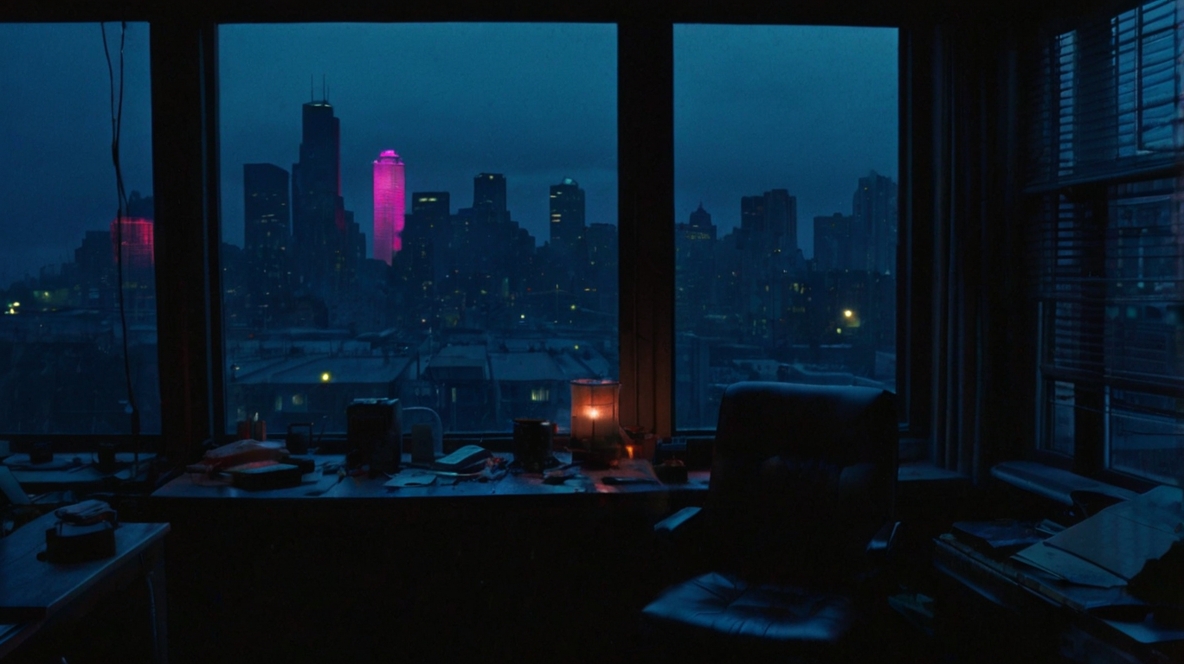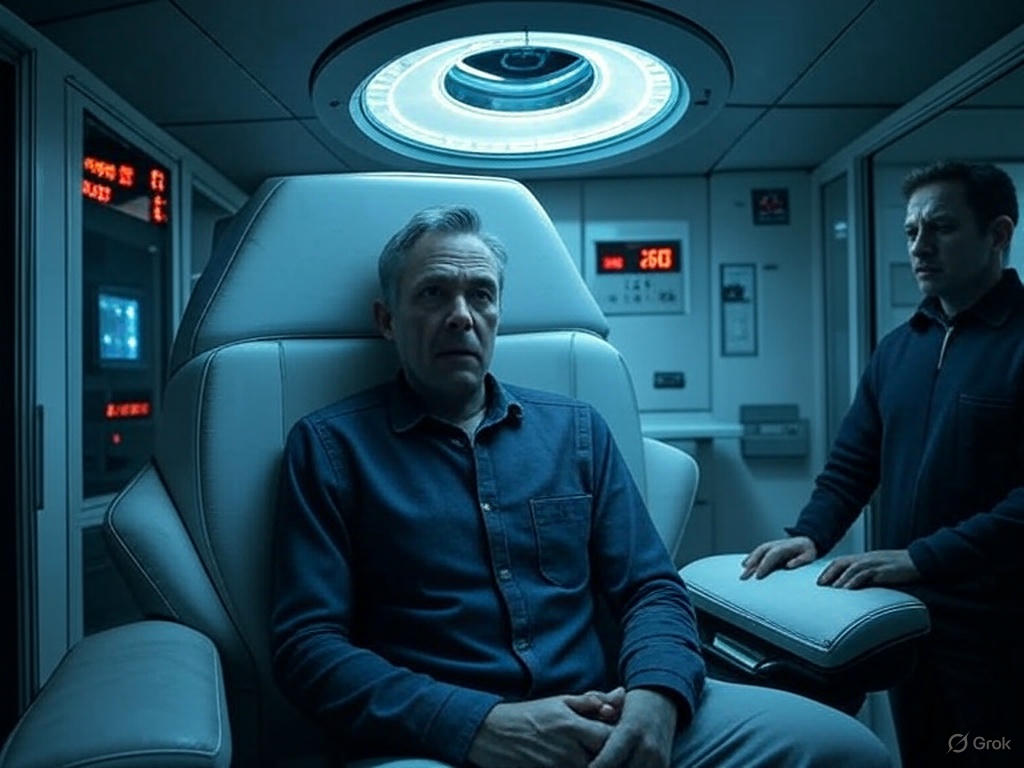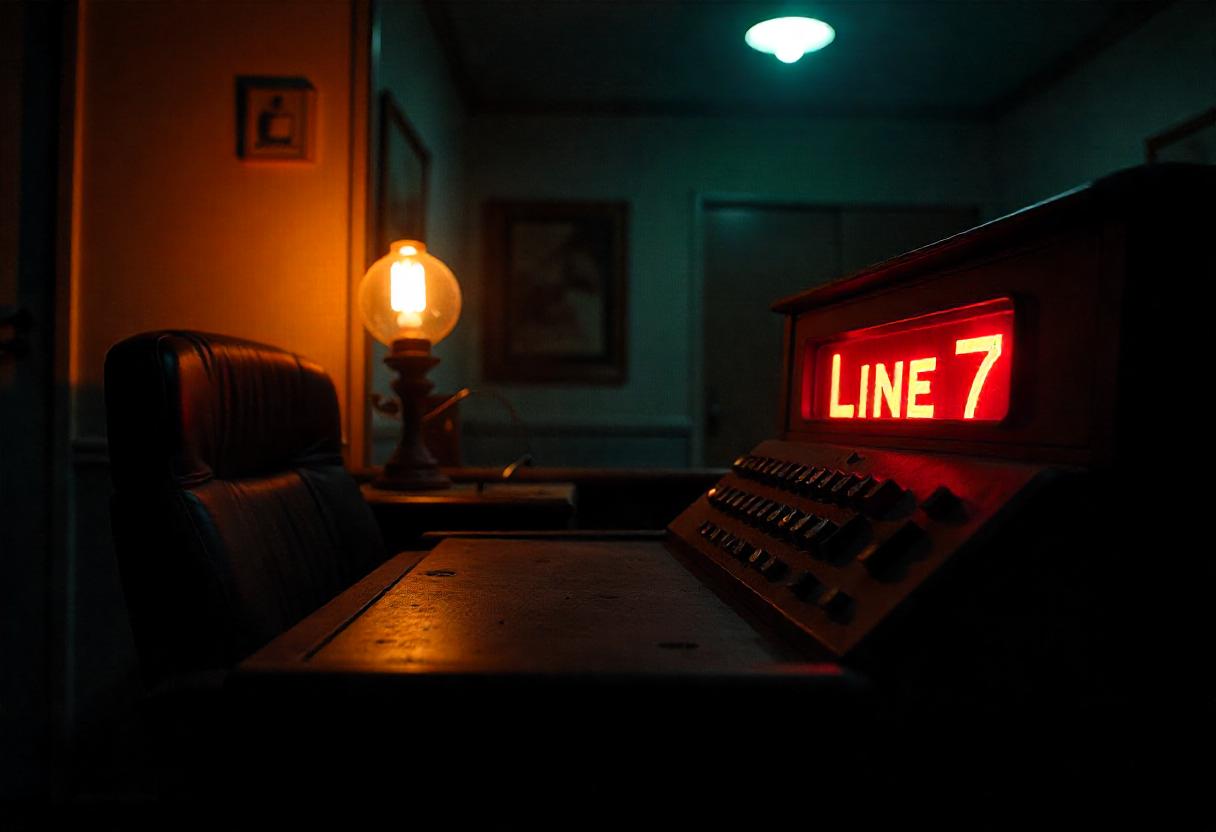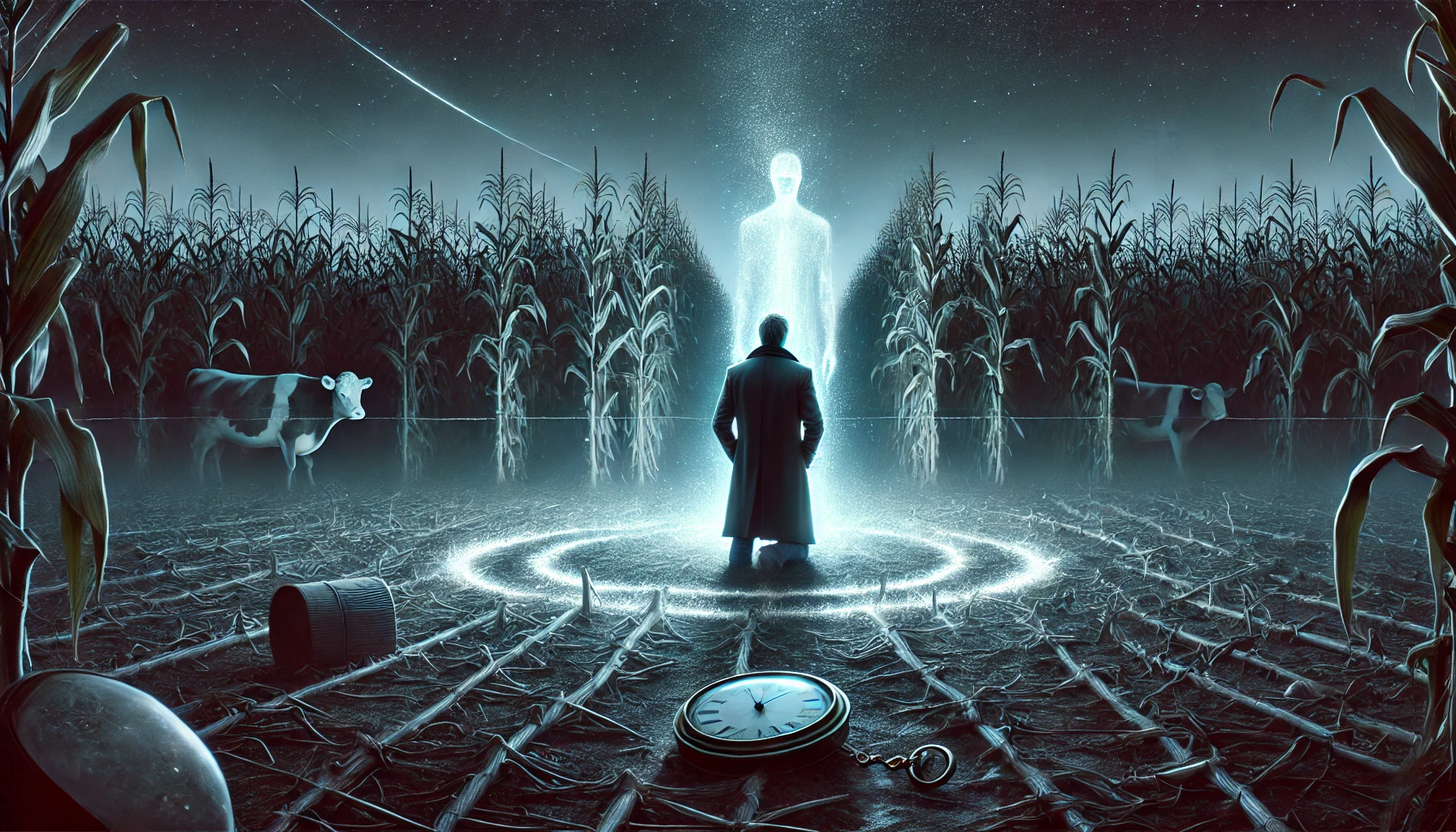
The Watched Window
A dark Seattle apartment at night, rain streaking the window, with misaligned blinds revealing a neon-lit city. A scratched Polaroid camera sits on a cluttered desk, a blank Polaroid beside it, faintly showing a window’s outline. A shadowy figure looms outside, barely visible, heightening paranoia. Use deep blues, grays, and neon pinks for a tense, unsettling atmosphere.
The window blinds twitched, a flicker Daniel swore he saw, though no one stood outside. His fear of being watched, rooted in a childhood stalker his parents dismissed, kept him awake, scanning the dark corners of his Seattle apartment.
Rain battered the glass, the city’s neon glow a smear beyond. Daniel, a freelance coder, hadn’t left his apartment in weeks, convinced unseen eyes tracked his every move. A Polaroid camera, its lens scratched, sat on his desk—a relic from his father, now a symbol of his paranoia, its undeveloped film holding shapes he feared to see. His heart raced; each click of the camera’s shutter felt like proof someone was closer than he thought.
The apartment’s hum—fridge, pipes, static—felt alive, conspiring. Daniel checked the blinds again, their slats misaligned, revealing slivers of the outside world. Was he imagining the shadows shifting beyond, or had his fear become reality? His fingers grazed the camera, its weight tethering him to a truth he couldn’t face.
A soft tap at the door froze him. Through the peephole, his neighbor, Mara, held a package, her smile tight. “This came for you,” she said, her eyes darting to the camera on his desk. “Be careful what you look for.” Her warning, laced with unease, suggested she knew more about the eyes he felt than she let on.
The camera was his curse, its lens a mirror to his fractured mind. Daniel’s childhood memory—blurred glimpses of a figure outside his window—resurfaced, blending with the present. Was Mara part of it, or was his paranoia twisting her kindness? He clutched the camera, its film unexposed, as if it held answers he both craved and dreaded.
The package contained a single Polaroid, blank but for a faint outline—his window, seen from outside. Daniel’s stomach churned; someone had been there, watching, capturing him. His mind spiraled: stay hidden and let the fear consume him, or confront the truth and risk exposure. The camera’s shutter clicked in his trembling hands, an accidental snap, the film whirring with a life of its own.
Mara’s words echoed, her glance at the camera a clue to a larger threat. Daniel’s gaze flicked to the window, where the blinds now hung still, too still. The city’s lights flickered, as if synchronized with his pulse, and the apartment’s hum grew louder, a rhythm like footsteps. He wanted to smash the camera, to erase its hold, but his father’s voice whispered: “See what’s real.”
A shadow passed outside, fleeting but deliberate. Daniel’s breath caught as the Polaroid in his hand began to develop, revealing not his window but his own face, eyes wide, staring back. The camera clicked again, unprompted, its lens reflecting not his room but a figure—blurred, too close. His internal conflict raged: flee, or face the watcher he could no longer deny.
The hum became a low buzz, the air electric with presence. Daniel’s hand shook as he lifted the camera, aiming it at the window. The blinds rattled, though no wind blew, and the city’s lights dimmed, isolating him in the dark. He pressed the shutter, the flash blinding, and the film ejected, blank but warm, as if alive.
Daniel stumbled to the window, camera in hand, and parted the blinds. The street was empty, but the Polaroid in his pocket felt heavier, its image still forming. He stepped outside, driven by the need to know, the camera’s lens his only guide, as the buzz followed him into the night.
Rain battered the glass, the city’s neon glow a smear beyond. Daniel, a freelance coder, hadn’t left his apartment in weeks, convinced unseen eyes tracked his every move. A Polaroid camera, its lens scratched, sat on his desk—a relic from his father, now a symbol of his paranoia, its undeveloped film holding shapes he feared to see. His heart raced; each click of the camera’s shutter felt like proof someone was closer than he thought.
The apartment’s hum—fridge, pipes, static—felt alive, conspiring. Daniel checked the blinds again, their slats misaligned, revealing slivers of the outside world. Was he imagining the shadows shifting beyond, or had his fear become reality? His fingers grazed the camera, its weight tethering him to a truth he couldn’t face.
A soft tap at the door froze him. Through the peephole, his neighbor, Mara, held a package, her smile tight. “This came for you,” she said, her eyes darting to the camera on his desk. “Be careful what you look for.” Her warning, laced with unease, suggested she knew more about the eyes he felt than she let on.
The camera was his curse, its lens a mirror to his fractured mind. Daniel’s childhood memory—blurred glimpses of a figure outside his window—resurfaced, blending with the present. Was Mara part of it, or was his paranoia twisting her kindness? He clutched the camera, its film unexposed, as if it held answers he both craved and dreaded.
The package contained a single Polaroid, blank but for a faint outline—his window, seen from outside. Daniel’s stomach churned; someone had been there, watching, capturing him. His mind spiraled: stay hidden and let the fear consume him, or confront the truth and risk exposure. The camera’s shutter clicked in his trembling hands, an accidental snap, the film whirring with a life of its own.
Mara’s words echoed, her glance at the camera a clue to a larger threat. Daniel’s gaze flicked to the window, where the blinds now hung still, too still. The city’s lights flickered, as if synchronized with his pulse, and the apartment’s hum grew louder, a rhythm like footsteps. He wanted to smash the camera, to erase its hold, but his father’s voice whispered: “See what’s real.”
A shadow passed outside, fleeting but deliberate. Daniel’s breath caught as the Polaroid in his hand began to develop, revealing not his window but his own face, eyes wide, staring back. The camera clicked again, unprompted, its lens reflecting not his room but a figure—blurred, too close. His internal conflict raged: flee, or face the watcher he could no longer deny.
The hum became a low buzz, the air electric with presence. Daniel’s hand shook as he lifted the camera, aiming it at the window. The blinds rattled, though no wind blew, and the city’s lights dimmed, isolating him in the dark. He pressed the shutter, the flash blinding, and the film ejected, blank but warm, as if alive.
Daniel stumbled to the window, camera in hand, and parted the blinds. The street was empty, but the Polaroid in his pocket felt heavier, its image still forming. He stepped outside, driven by the need to know, the camera’s lens his only guide, as the buzz followed him into the night.



Comments